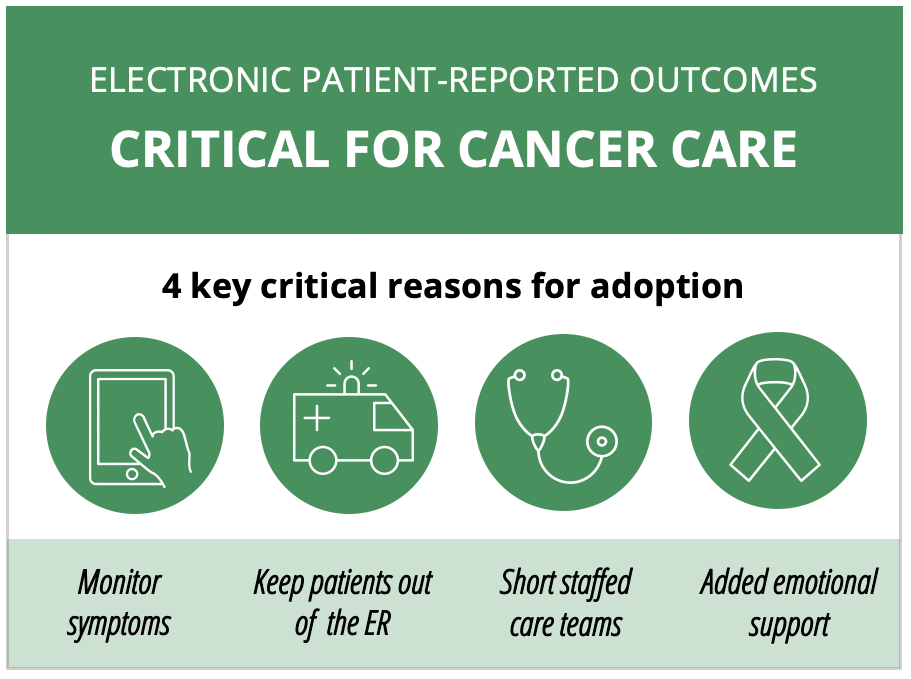
The Journal of Oncology Practice recently published an editorial titled, “COVID-19 Emergency and the Need to Speed Up the Adoption of Electronic Patient-Reported Outcomes in Cancer Clinical Practice.” The physician authors pointed out 4 critical reasons to adopt an electronic patient-reported outcomes (ePRO) program:
- Ensure systematic evaluation of symptoms and toxicity. An ePRO program prompts patients to report what they’re experiencing on a regular basis. As opposed to occasional communication, systematic check-ins allow the care team to monitor clinical trends and proactively intervene when necessary.
- Keep patients out of the emergency department. Cancer patients are already vulnerable and in the current pandemic, it’s even more important to help them avoid emergency departments and hospitals as much as possible. An ePRO program keeps the patient closely connected to the care team so that symptoms can be proactively managed before urgent care is required.
- Medical facilities are short staffed. The COVID-19 pandemic has impacted the healthcare workforce more than just added patient needs. Many healthcare providers themselves have been exposed to the virus and become ill. The resulting staff shortage necessitates added efficiency to care for all patients. ePROs can help fill the gap by automating screenings and directing PROs that require medical attention to the appropriate care team member.
- Give patients added psychosocial support. Depression and anxiety are common in cancer patients. They are facing a scary and difficult time in their life filled with uncertainties. The pandemic has added isolation to the equation. A steady cadence of communication with the care team can be an important reminder that the patient isn’t alone and can get help when it’s needed.
ePROs are a critical change for cancer care
The authors added this in conclusion, “With the medical crises of the COVID-19 pandemic and our imperative to provide high-quality care to our patients with cancer, a rapid implementation of ePROs in clinical practice is a critical change to assist oncologists and patients.”
Technology is playing a growing role in the delivery of cancer care in the current healthcare emergency and many see digital communication methods as a permanent part of the care they provide. In addition to telehealth for medical appointments, remote monitoring will also be essential to caring for patients in a holistic way.
Navigating Cancer’s ePRO program, Health Tracker, is enabling an important connection for patients today. In a recent survey, one patient told us, “I think it is just a marvelous tool! I feel very cared for and it’s so easy!”
Interested in giving your patients added support when they’re away from the clinic? Learn more about Health Tracker today.
